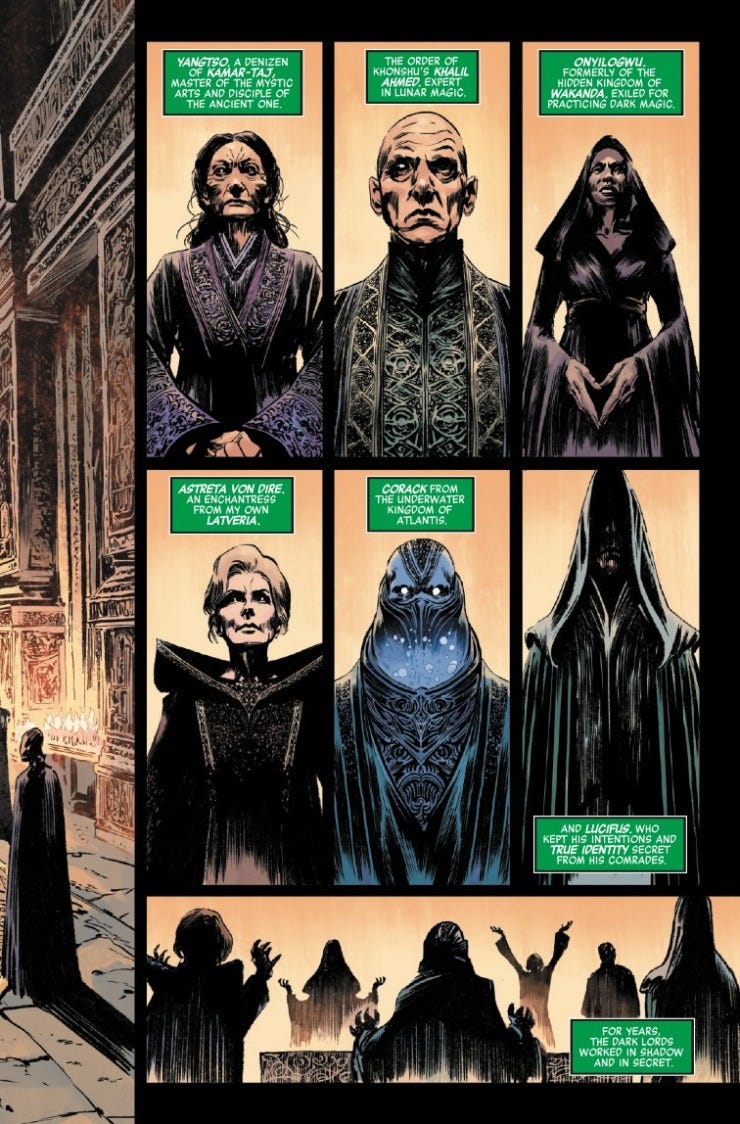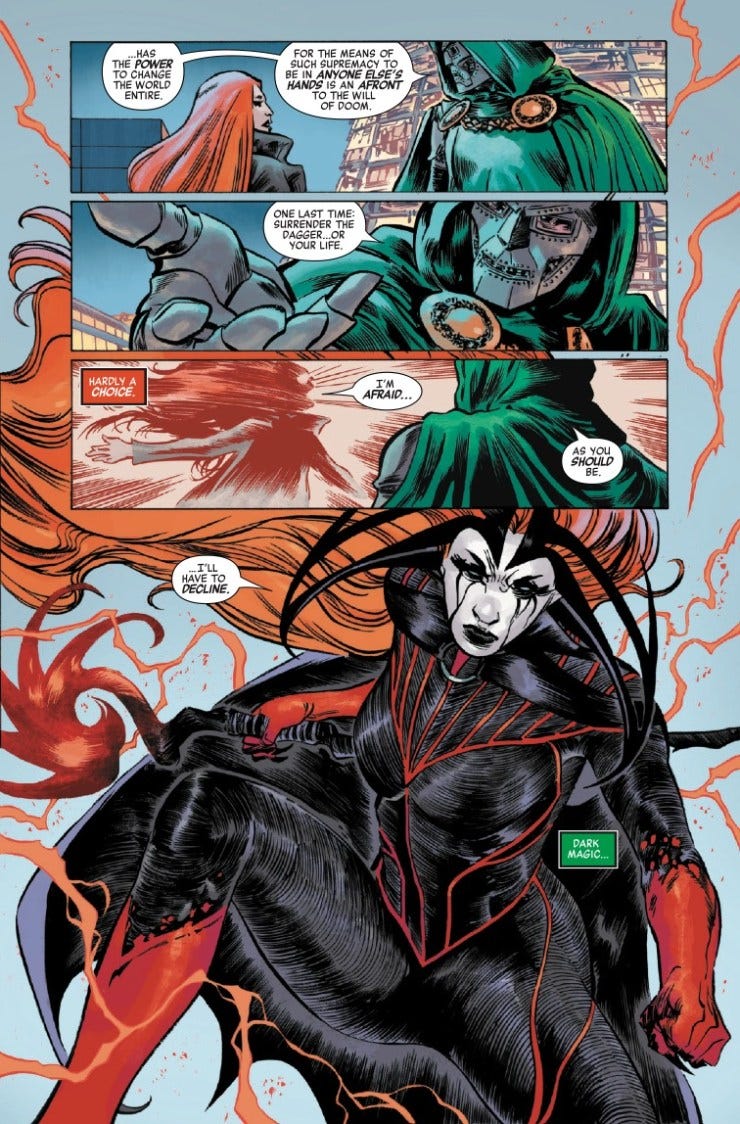NOTES ON NOTES
LegalDispatch 133
Recently, one of the executives on PROJECT VISTA asked me what kind of notes would be most helpful to receive. I thought this was a very interesting question and I admire the exec for having the courage to ask it. That question — combined with my near-daily receiving of notes in one form or another — got me thinking about the notes process, particularly as it pertains to Hollywood. And I ended up with a list of things I wish executives would and wouldn’t do:
GIVE NOTES ON THE ACTUAL DOCUMENT YOU RECEIVED
No one goes into a car dealership to get a brochure on a particular model and then complain that they can’t drive the brochure. So why do so many executives feel the need to give script-level notes on documents (e.g., story areas, beat sheets, and outlines) that aren’t scripts? Generally, I think the answer is that many executives aren’t able to determine an execution-dependent note (e.g., a script note) from a general story note, so they just give every note that comes into their heads and leave it to the writer to cut the wheat from the chaff.
Which brings me to:
CURATE YOUR NOTES
You don’t have to give every note that comes into your head — or, for that matter, the head of your fellow execs, your intern, your assistant, etc. Instead, curate the notes. Pass along the ones that make the story, television series, movie, episode — whatever — better. Trust in your ability to distinguish a good note from a bad one and don’t rely on the writer to do it for you.
Which brings me to:
REMEMBER THE PURPOSE OF NOTES
If you get any number of writers, producers, and/or executives in the same room, the conversation — I guarantee you — will inevitably turn to “the notes process.” I will also guarantee that NO ONE is happy with it. The system is broken and doesn’t really work for anyone — regardless of whether they’re the one receiving the notes or giving them.
I think the reason the notes process is so broken is that we’ve all — writers included — forgotten what the purpose of notes is. Let’s start with what it’s not:
Notes aren’t an exercise in making the person giving the notes “feel heard.”
Notes aren’t a means of justifying the job of the person giving the notes.
Notes aren’t just something that’s given because “well, that’s just the way things are done.”
Rather, notes have one singular purpose: Make the project better.
Note that this is very distinct from “make the project DIFFERENT.” I’ll have more to say on this below, but the truth is, there are only three types of notes:
Notes that make the project better.
Notes that make the project worse.
Notes that make the project different.
And, unfortunately, this is an area where many executives abdicate their responsibility to distinguish the three different types to the writer. Don’t be that type of exec.
GIVE NOTES ON WHAT WAS WRITTEN, NOT WHAT YOU WISH HAD BEEN WRITTEN
This is a variation on “don’t give notes that just make the project different.” The writer determines the story. Yes, you can have input into its general shape, but once you’ve gotten past that stage, if you want something different than what everyone agreed to, write it yourself.
GIVE NOTES LIKE A MEMBER OF THE AUDIENCE, NOT AS AN EXECUTIVE OR PRODUCER
At its best, the notes process functions as a kind of “test screening.” The producers and execs are the project’s first audience members. The problem is, as the years have gone by, the way an exec or producer experiences content (to use a catch-all term) is very different than the way an audience experiences it. Trust me, your average audience member is not looking to poke holes in the logic of the story unless they’re bored out of their mind — and typically not even then.
As an example, I point to the general passage of day and night in a given TV episode or movie. Believe me, if the audience cares — or even notices — the project has much, much bigger problems.
As a related point:
DON’T ONLY GIVE LOGIC NOTES
Like I said above, the general audience doesn’t care about story logic if they’re emotionally engaged with the story. Accordingly, logic notes are typically the refuge of the incompetent producer or executive. If they’re only giving logic notes, it’s annoying — yes — but it’s really the equivalent of a neon sign hanging over their head proclaiming that they have no idea what they’re doing.
DON’T USE AI TO CREATE OR SUBSTANTIATE YOUR NOTE
This would normally go without saying, but recently it happened to me, so…
BRING ON THE BAD GUYS
Tuesday (6/18) sees the release of the first issue of Bring On The Bad Guys which focuses on Doctor Doom.
Here’s a preview from by friends at AIPT with art by Steffano Raffaele and Neeraj Menon:
I’m very excited about this one. I hope you’ll give it a look.
IN ANY LIFETIME
I’m excited to report that In Any Lifetime has exceeded 7,000 reviews on Amazon.com. The average review remains 4 out of 5 stars.
This is also exciting. They’re preparing the Korean edition of the novel and shared with me this gorgeous cover:
In Korean, the title has been translated to “I’ll Meet You In Another Universe.”
Be good to each other.
Best,
Marc
Encino, California
6.14.25
A regularly-updated list of upcoming releases and events:
BRING ON THE BAD GUYS: DOOM (June 18, 2025)
SPIDER-MAN & WOLVERINE #2 (June 25, 2025)
STAR WARS: JEDI KNIGHTS #5 (July 2, 2025)
BRING ON THE BAD GUYS: GREEN GOBLIN (July 2, 2025)
BRING ON THE BAD GUYS: ABOMINATION (July 16, 2025)
BRING ON THE BAD GUYS: LOKI (July 29, 2025)
SPIDER-MAN & WOLVERINE #3 (July 30, 2025)
JUSTICE LEAGUE: DARK TOMORROW (July 30, 2025)
STAR WARS: JEDI KNIGHTS #6 (August 6, 2025)
BRING ON THE BAD GUYS: RED SKULL (August 13, 2025)
BRING ON THE BAD GUYS: DORMAMMU (August 20, 2025)
BRING ON THE BAD GUYS: MEPHISTO (August 27, 2025)
STAR WARS: JEDI KNIGHTS #7 (September 9, 2025)
GALAXYCON DES MOINES (September 12-14, Des Moines, Iowa)
NEW YORK COMIC CON (October 9-12, 2025)
X-MEN BY MARC GUGGENHEIM Omnibus (October 14, 2025)
STAR WARS: JEDI KNIGHTS Volume 1 (November 4, 2025)








Great notes on notes, Marc. 😜 It's my tendency to be the logic police, but I learned to give better reads by getting a lot of crappy notes. I learned to read the PAPER script twice (vibes first, then technical) toward two ends: what's the goal, and did the writer accomplish it; and how, if requested, I might assist them with that goal. Macro to micro. Keeps me more objective.👍🏽
I am gonna name drop. Was working with Marc Pedowitz on a project. At ABC at the time, now the CW maestro. Best exec I have ever worked with. His notes were specific, simple, direct and given with a sense of collaboration. They were ALWAYS helpful.
Giving notes can be great fun; even getting notes can be fun, or at least helpful. I learned how to take notes from watching Dick Wolf get notes from NBC execs. He played them like the cheap, untuned, tone-dear violins they were….
Compare Pedowitz with a former Bruckheimer exec on a show I was working on. This guy was a loon. One day he came screaming into a writers room to tell me, in charge of the room, that I had ignored his notes, waiving an outline at me. I pointed out that the outline in his hand was almost two weeks out of date, that the notes on that outline had been executed, that the teleplay was almost ready and suggested we might wait for the tp to come out to get further notes. He insisted on giving notes on the outdated outline. He then insisted that a teleplay and an outline were virtually the same thing. I demurred. He objected. I suggested that, had they — the outline and teleplay — been the same thing, there would be only one word for them/it, not two. He then said that his notes were not suggestions, but orders. I suggested that I took orders from the head writer, who was not in the room, but that he might want to take it up with said head writer. He took umbrage. I was fired soon thereafter. I asked that they send my remaining checks for the next 9 episodes to Hawaii….. VERY WELL PAID vacation…..